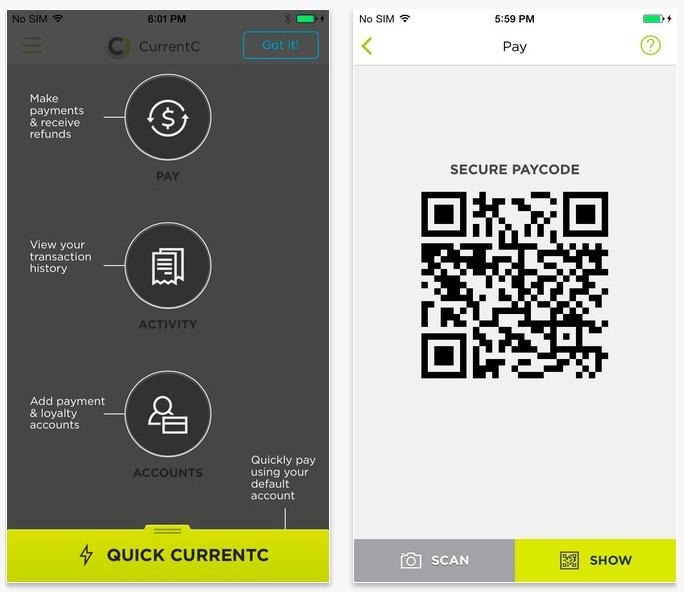JPMorgan Chase on Friday said it has reached an agreement with the Merchant Customer Exchange to buy the consortium's financial technology assets — the defunct CurrentC mobile payments platform — as the bank works to build out its own Chase Pay solution.
The announcement from JPMorgan Chase comes nine months after MCX officially shut down CurrentC operations following a brief beta period last June.
Though JPMorgan Chase fails to mention the CurrentC brand name, instead referencing MCX "FinTech" payments technology, the failed platform is thought to be at the heart of the sale. The bank partnered with MCX to integrate CurrentC assets at the core of its Chase Pay app in 2015, and today's purchase is an extension of that effort.
For JPMorgan Chase, the buy nets MCX consortium members like Walmart, Shell and Phillips 76, whose payment backends were already tied to the service, and thereby Chase Pay.
Chase executives said they opted to purchase the FinTech assets in lieu of building separate parallel technology to serve non-MCX members, suggesting the forthcoming integration will expand the system beyond consortium companies.
"MCX has been an important partner, and their technology complements ours, so we're thrilled to deepen our relationships with the merchant community through the purchase of this technology," said Jennifer Roberts, head of Chase Pay. "This will help us get to market faster."
In development since 2012, CurrentC was designed to link directly with customer bank accounts, allowing partner retailers like Walmart to skirt credit card network fees. MCX later attempted to corner the market by restricting consortium member from accepting other NFC payment platforms including Apple Pay, which launched in late 2014.
Customers first complained of the embargo shortly after Apple Pay debuted, noting MCX members CVS and Rite Aid opted to deactivate their NFC point of sale terminals rather than accept Apple's service. MCX responded to criticism of the lockout days later, saying exclusivity would end in "months, not years."
Despite early attempts at getting CurrentC up and running, ongoing troubles and industry pressure prompted Rite Aid and Best Buy to break rank and begin accepting Apple Pay payments in 2015. Walmart, a major MCX partner, followed and launched its own branded solution last year.
Despite years of setbacks, and lackluster adoption rates seen during its brief test period, MCX is spinning the sale to JPMorgan Chase as a win for its payments initiative.
"Consistent with our mission to provide secure, consumer friendly, and cost effective mobile payment solutions to the marketplace, MCX took advantage of this opportunity to have the solution expanded to the broader merchant community", said MCX CEO Brian Mooney.
 AppleInsider Staff
AppleInsider Staff







-m.jpg)






 Charles Martin
Charles Martin

 Malcolm Owen
Malcolm Owen
 William Gallagher
William Gallagher

 Christine McKee
Christine McKee
 Wesley Hilliard
Wesley Hilliard








52 Comments
And 'round the bowl it circles…
🚽 💩
If they paid more than one dollar they paid too much.
I hope they didn't pay more than, like, $250 for it, because that is literally all it is worth, if even that. The Current-C technology was overly complicated, never tested in the real world on a large scale, and compromised customer information *like crazy.* Using any part of this for a system that only one (admittedly large) bank's customers can use is going to flop so hard. Hint for JPMorganChase: if *Walmart* couldn't make their variation of this system popular, you can't either. Those Current-C creeps (who lied like dogs throughout their entire fiasco) must be laughing their heads off.
Lol. Deducted this back when Apple Pay was being blocked in favor of whenever current-c would get its act together. If the mcx actually cared about security, convenience, and ease of use like they say, they'd simply throw full support behind Apple Pay.
The only solution that that actually protects the consumer instead of tracks the consumer.